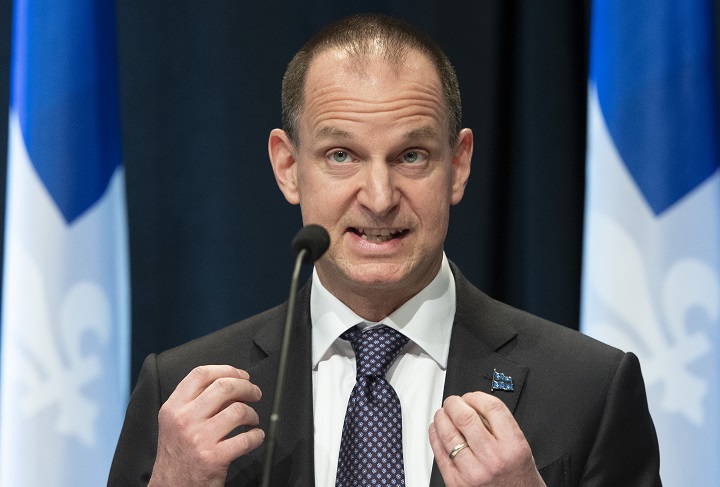A year after Quebec reported a record deficit, the province’s finances have changed dramatically, Finance Minister Eric Girard said Thursday as he presented a fall economic update.

The update came amid what Girard described as a “fantastic” economic rebound that has put more money in government coffers.
Girard said Quebec is forecasting net economic growth of 6.5 per cent this year — a jump of 2.3 percentage points compared to the 4.2 per cent growth that was predicted in the spring budget.
“The year 2021 is a year of exceptional growth,” he told reporters in Quebec City. “Quebec growth is going to outpace U.S., Canada, the world average. So this is giving us means; it’s giving us $6 billion over the horizon of the financial framework.”
He added: “Because of our high vaccination rate, because we respected the rules, this allowed us to open the economy and perform well.”
Included in the budget update are direct payments for low- and middle-income individuals, aimed at countering the effect of inflation, which he said could be four per cent this year.

Get breaking National news
All single Quebecers whose income is less than $50,000 will receive a $275 payment, and couples whose combined income is less than $55,912 will get a total of $400. The one-time payments to more than three million people will cost $739 million, Girard said.
The government is also doubling an annual payment for low-income people over the age of 70, from $200 to $400. About 709,000 people will benefit, Girard said.
A year ago, Quebec reported a historic deficit of $15 billion. This year, Girard said the deficit will be $6.8 billion, down from a projection of $8.3 billion in the spring budget. The debt-to-GDP ratio is 44.3, down five percentage points from projections made in the last budget.
The province aims to return to a balanced budget in the 2027-28 fiscal year.
Girard also announced that the government will increase a refundable tax credit for people who send their children to unsubsidized daycares, as part of an effort to deal with the long waiting lists for spaces in its public system.
The province plans to spend $3 billion over five years to retrain 170,000 workers, as it looks to deal with widespread labour shortages. The retraining will be focused on workers in the daycare, education, health and construction sectors.
Girard’s budget update also promises to spend $800 million to reduce the waiting list for surgeries.










Comments
Want to discuss? Please read our Commenting Policy first.